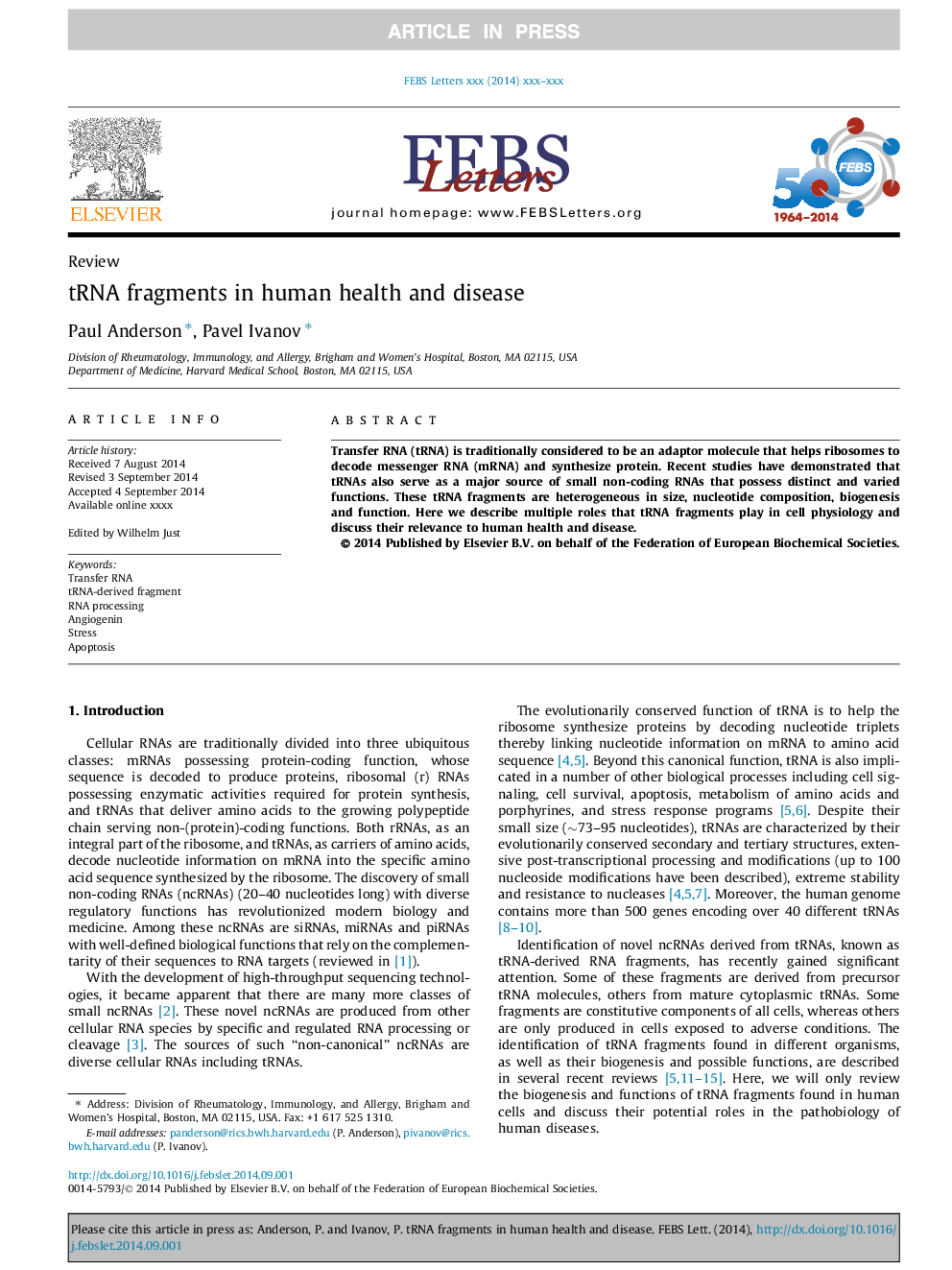| Article ID | Journal | Published Year | Pages | File Type |
|---|---|---|---|---|
| 2047535 | FEBS Letters | 2014 | 8 Pages |
Abstract
Transfer RNA (tRNA) is traditionally considered to be an adaptor molecule that helps ribosomes to decode messenger RNA (mRNA) and synthesize protein. Recent studies have demonstrated that tRNAs also serve as a major source of small non-coding RNAs that possess distinct and varied functions. These tRNA fragments are heterogeneous in size, nucleotide composition, biogenesis and function. Here we describe multiple roles that tRNA fragments play in cell physiology and discuss their relevance to human health and disease.
Related Topics
Life Sciences
Agricultural and Biological Sciences
Plant Science
Authors
Paul Anderson, Pavel Ivanov,
